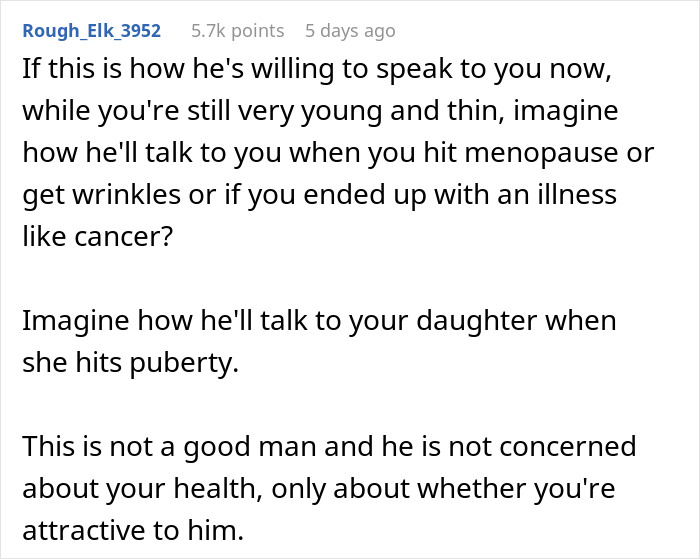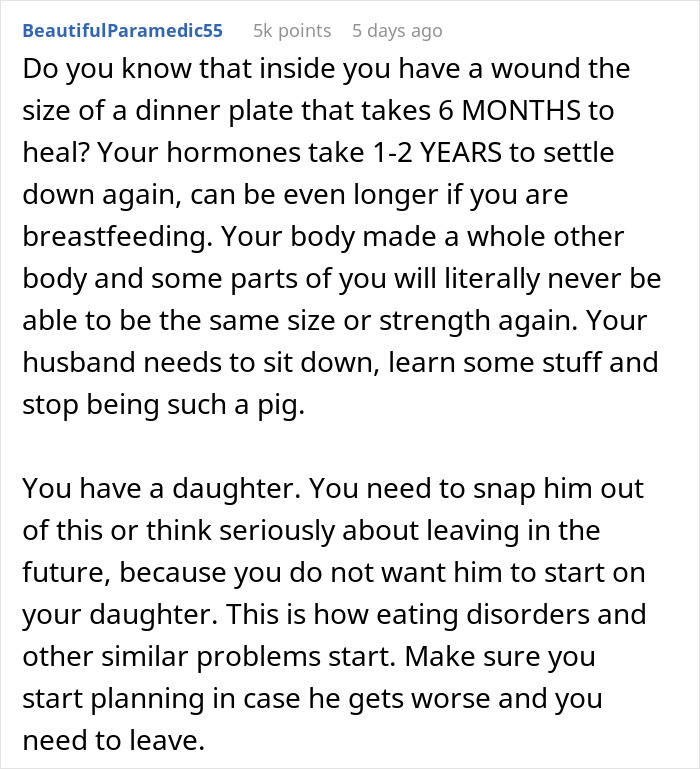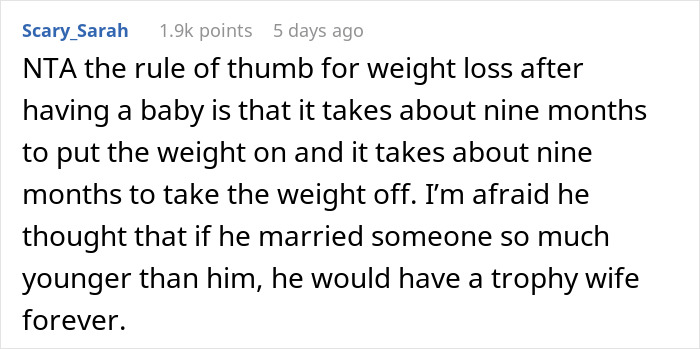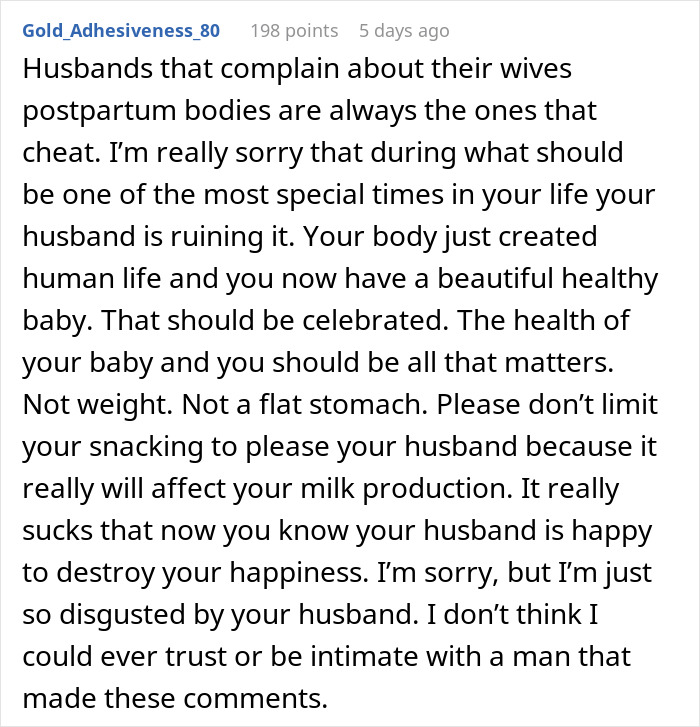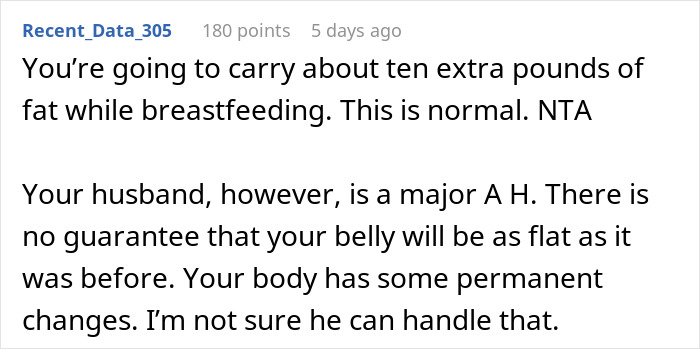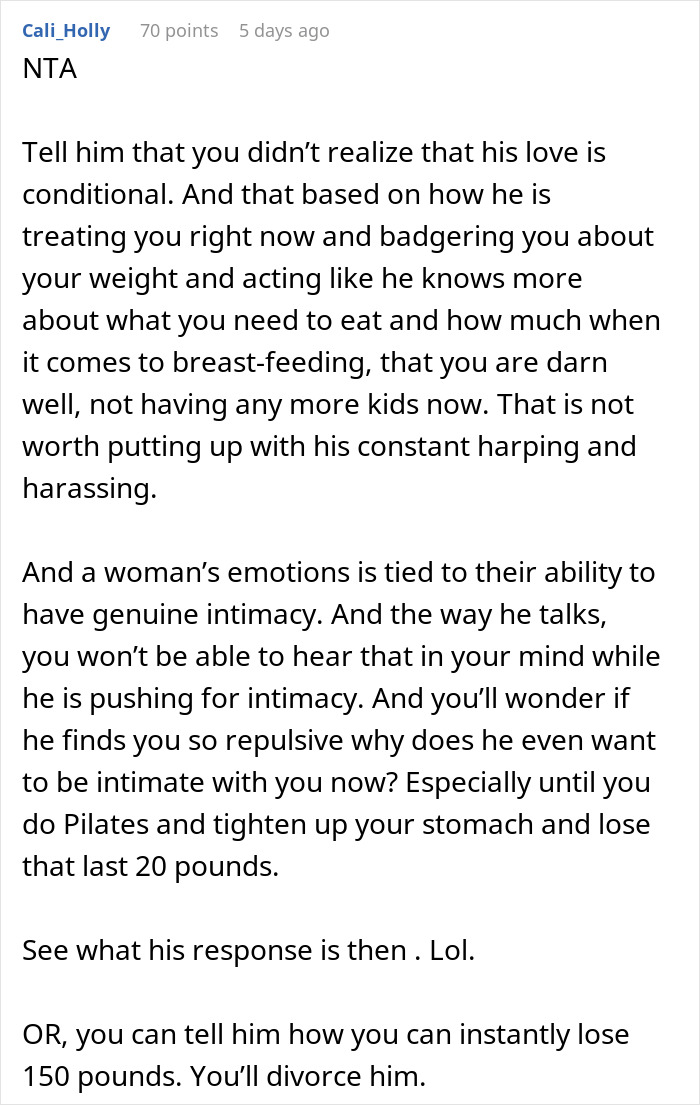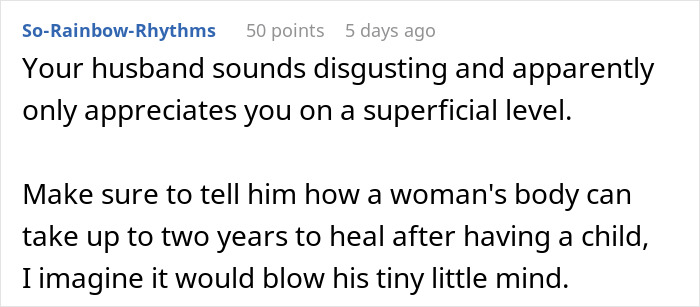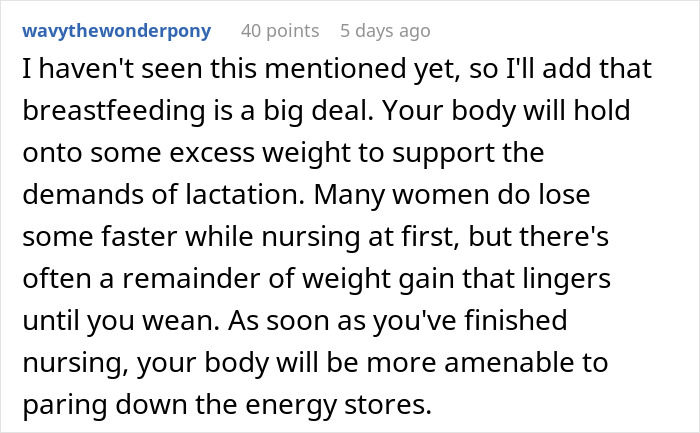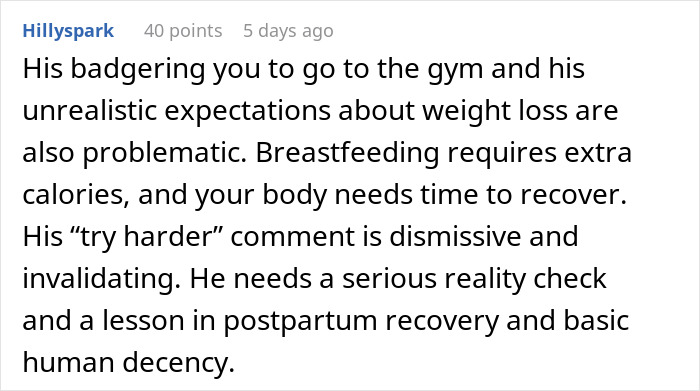A woman’s body can change drastically after giving birth, and many might feel pressure to look the same way they did before the birth. According to a survey from The Mental Health Foundation, 41% of women feel more negative about their bodies after giving birth.
Support from partners on this issue might be crucial postpartum, but some spouses make it even worse. This husband, for example, felt it was okay to tell his wife to “try harder” to lose weight four months after giving birth. After the two got into a fight about it, the new mom went to look for support online.
To know more about the myth that new moms need to “bounce back”, Bored Panda reached out to the San Francisco-based licensed clinical psychologist specializing in perinatal, reproductive, and maternal mental health Dr. Caroline Dickens.
She has a course that helps expecting and postpartum moms improve their body image, as well as a general mental health skills course that supports moms through the common challenges of the transition to motherhood.
Dr. Dickens kindly agreed to tell us more about why it’s not healthy to compare a mom’s pre-pregnancy body to her post-partum body, and also spoke to us about what partners can do to support new moms during this challenging period.
More info: Palmetto Psychology Clinic | Instagram | The Moms Are Alright podcast
A husband thought his wife wasn’t losing weight as fast as he would like four months after giving birth
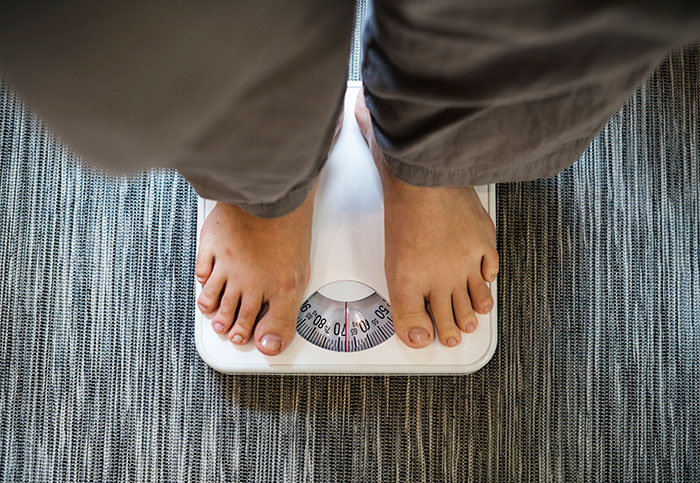
Image credits: rawpixel.com (not the actual image)
His wife had to school him about the fact that she can’t just magically lose the baby weight
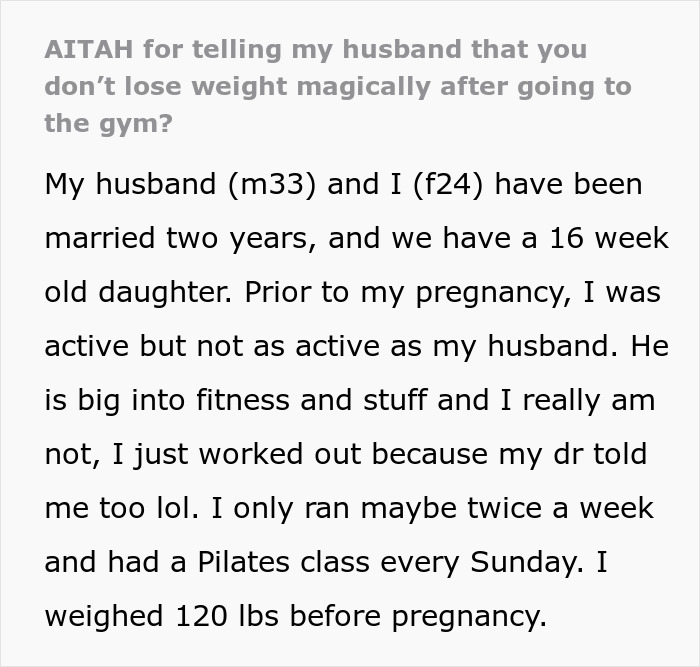
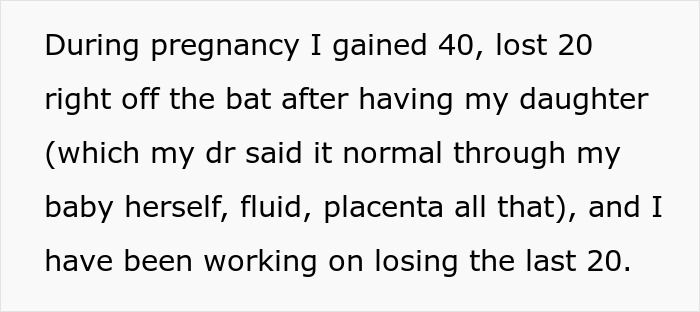
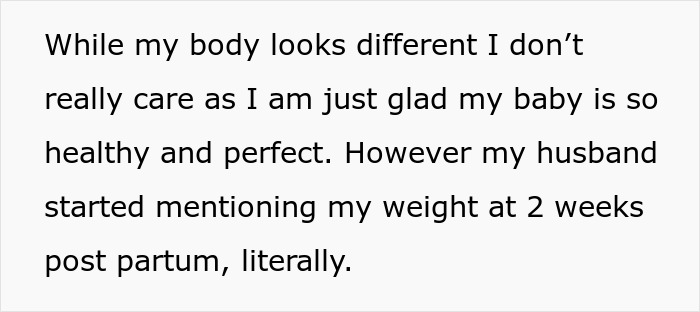
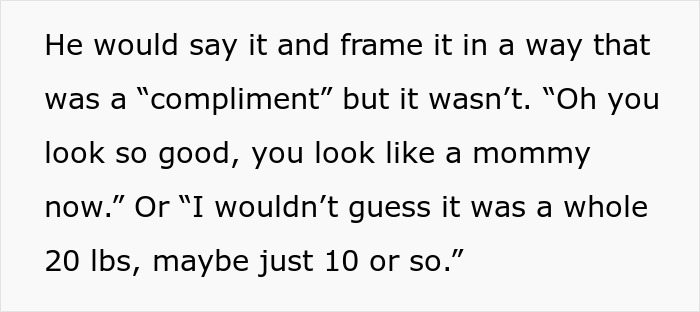

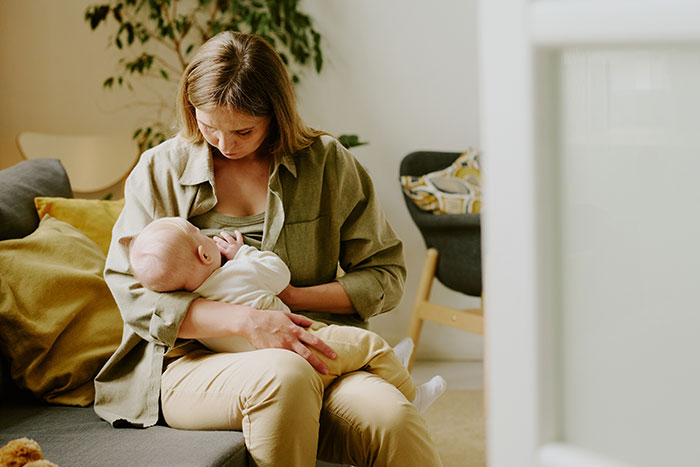
Image credits: Dazzling-Shopping937 (not the actual image)
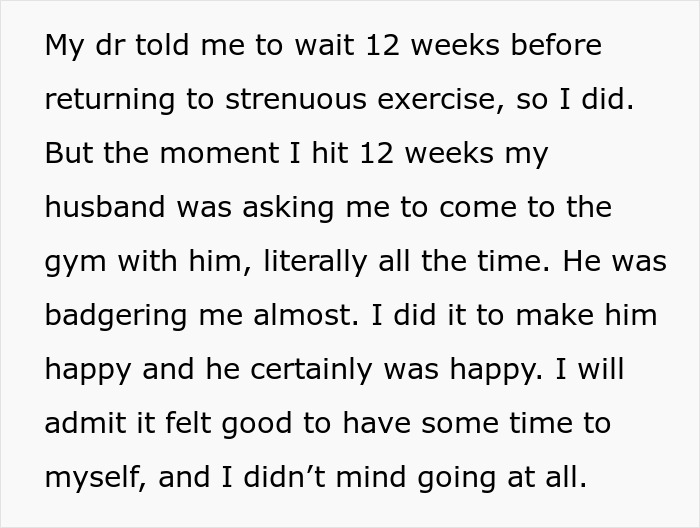
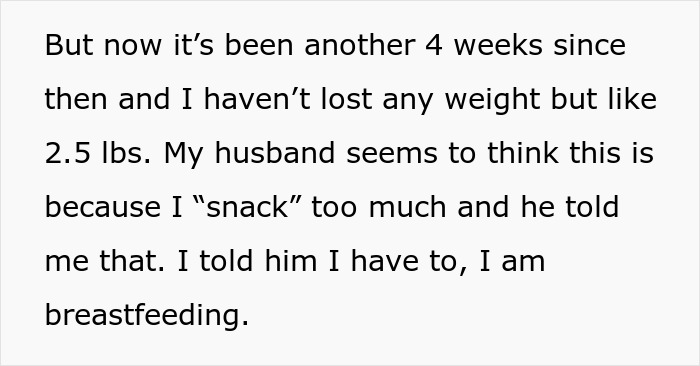
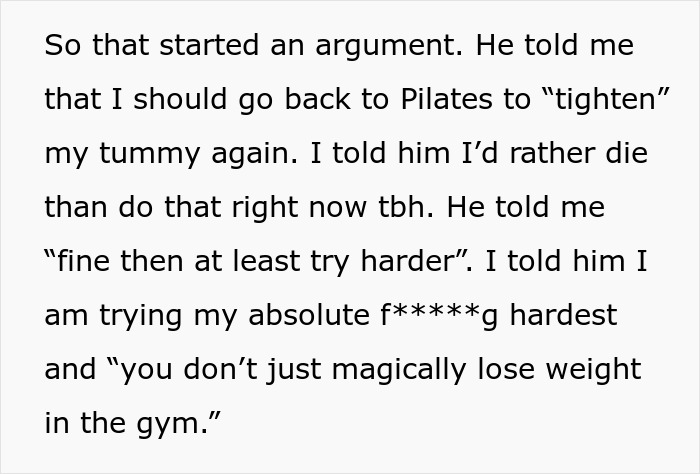

Image credits: Getty Images (not the actual image)
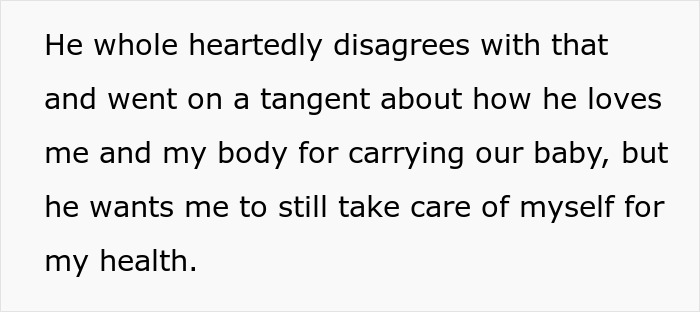
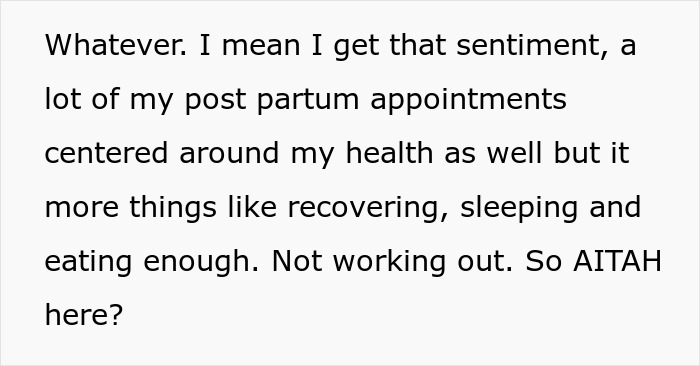
Image credits: Dazzling-Shopping937
A partner can help a new mom be healthier, but focusing on weight loss is not the way
There’s nothing inherently wrong with wanting to get back in shape after giving birth. In fact, doctors might even encourage physical activity after pregnancy, as it can relieve stress, promote better sleep, and reduce symptoms of postpartum depression.
However, new mothers should do so only if they want it themselves and do so at a moderate pace. As experts at John Hopkins note, it’s normal to retain around 10-15 pounds of extra weight in the months after giving birth. And it’s imperative to wait at least six to eight weeks after the birth to start any kind of rigorous physical activity.
Pregnancy and postpartum psychologist Dr. Caroline Dickens tells Bored Panda that partners also have a role here. “The non-birthing parent can be a great support when it comes to helping their partner engage in healthy behaviors postpartum,” she says. “But focusing on weight loss as the goal of doing so is unlikely to be healthy or helpful.”
A partner should support a post-partum mom with making sure she gets rest. Depending on where she is in her recovery, partners can also gently encourage movement, according to Dr. Dickens. They can also help out with cooking, grocery shopping, and helping the mother stay hydrated (especially while they’re still breastfeeding). If and when the mom is ready, the partner can look after the baby while she does formal exercise.
If the mom doesn’t explicitly ask her partner for weight loss help, they shouldn’t push for it. Dr. Dickens explains that focusing on weight loss, appearance, or putting any kind of time pressure on the mother to make these types of changes are red flags. “[They’re] more likely to add unnecessary stress, anxiety, shame, and guilt to what is already an inherently challenging phase of life for the mother,” the psychologist says.

Image credits: senivpetro (not the actual image)
It’s not fair to compare a new mom’s body to their ‘before’ body
In a culture that’s obsessed with appearances and thinness, it can be hard for new mothers to maintain a positive body image. Nevertheless, it’s crucial for the mother’s well-being, as research shows that dissatisfaction with body image contributes significantly to postpartum depression.
There is societal pressure for women to ‘bounce back’ after giving birth. When we see celebrities like Beyoncé, Kim Kardashian, or Serena Williams get their pre-baby bodies back just a few months after giving birth, we expect other women to do it too.
In reality, it’s not fair to ask women to evaluate their postpartum bodies against their pre-pregnancy bodies. According to Dr. Dickens, when we compare the before and after, we overlook the changes women go as they become mothers. “Women are not only experiencing profound physical and hormonal changes, but their circumstances, priorities, values, and identities have changed, as well,” she explains.
When we think of the “before” body, we take into account exercise routines, nutrition, lifestyle factors, etc. But, after giving birth, they may not be accessible. “Physical abilities may be different, and the time, energy, and money that may have played a role in pre-pregnancy health may be more limited postpartum,” Dr. Dickens points out.
This leads to a false comparison, according to her, because we ask women to overlook the transformatal nature of the post-partum phase. “[It] tends to lead to feelings of frustration, defeat, shame, and hopelessness,” according to Dr. Dickens.
When moms are allowed embrace the physical, mental, emotional, and external changes, they give themselves more compassion, flexibility, and understanding. “This allows for more positive, holistic, and sustainable changes to health-related behaviors,” Dr. Dickens notes.

Image credits: freepik (not the actual image)
People in the comments called the husband a walking red flag: “He is not concerned about your health, only about whether you’re attractive to him”



